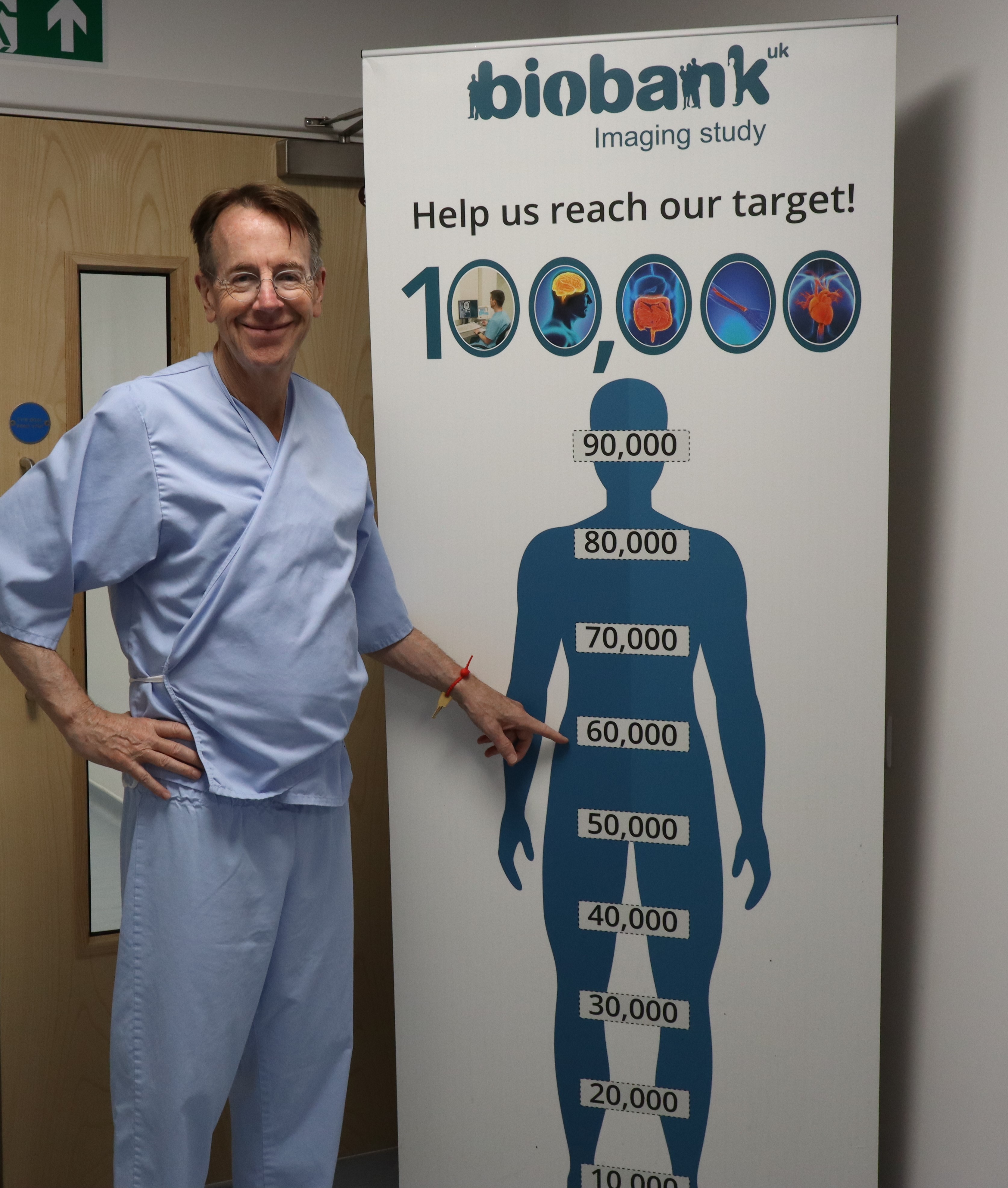World’s most ambitious imaging study scans 60,000th participant
World’s most ambitious imaging study scans 60,000th participant

UK Biobank’s Principal Investigator, Professor Sir Rory Collins, has today become the 60,000th volunteer to take part in the world’s largest internal organ imaging study. This marks a significant milestone in phase one of UK Biobank’s imaging project, which aims to capture Magnetic Resonance Imaging (MRI) data from the brain, heart and abdomen, together with bone density and ultrasound scans of the carotid arteries of up to 100,000 participants.
By capturing a vast number of images of the human body during both good and ill health and combining it with the genetic and lifestyle data already held on half a million participants, the study will improve understanding of why one person develops a life-altering disease when others do not, enabling scientists to diagnose, treat, and potentially prevent diseases like dementia, heart disease, arthritis and cancer.
Rory underwent the 5-hour assessment at UK Biobank’s imaging centre in Reading. Over 55,0001 people volunteered to join UK Biobank from Reading, London and Oxford between 2006 and 2010. Participants locally who have been invited to take part in an imaging assessment in Reading are encouraged to come forward to undergo their first assessment.
"“I am a proud participant of UK Biobank and I am therefore delighted to be taking part in the imaging study which will have profound impact on our understanding of disease and how it affects the body. Having imaging scans on such a large scale enables research into the mechanisms of disease and may lead to early prevention methods and more effective treatments for a wide range of diseases. Findings are already emerging on diseases such as heart disease and diabetes with research results indicating that diabetes can cause changes to the size of the chambers of the heart which leads to heart disease. We are excited to see what more will emerge for a wide range of diseases, such as dementia, with this wealth of data. ""Professor Sir Rory Collins, Chief Executive and Principal Investigator of UK Biobank
"“The availability of such detailed imaging of the organs of 60,000 participants, combined with genetic and lifestyle data, is truly unprecedented and is enabling research into many common diseases, such as stroke, heart attack, and dementia. Through my own work it has facilitated collaboration across research fields, bringing together data scientists, cardiologists, and computer scientists in order to process images accurately at scale. It is accelerating research and we are using these data to understand the progression of disease and preventative strategies and treatments for the future.”"Steffen Petersen, Professor of Cardiovascular Medicine, Queen Mary University of London
As the number of people attending baseline imaging grows, participants will be invited back for phase two of the imaging project which will involve performing repeat imaging on 60,000 of these participants, two to seven years after their initial scan to investigate the progression of disease. The funding for this has been provided by a public-private partnership between the Medical Research Council (MRC); Calico Life Sciences, a biotechnology organization founded by Alphabet and Arthur D. Levinson; and the Chan Zuckerberg Initiative (CZI), a philanthropy founded by Priscilla Chan and Mark Zuckerberg. These second scans will enable researchers to understand changes taking place in the body even before symptoms of disease occur. Repeat imaging is expected to begin in late 2022.
Ends
Notes:
The UK Biobank imaging assessment centre in Reading is supported by centres in Stockport, Newcastle and Bristol to help reach the milestone of 100,000 people scanned.
The UK Biobank imaging study is funded by the Medical Research Council, Wellcome and the British Heart Foundation.
129,444 in Reading, 14,071 in Oxford and 12,603 in London.
